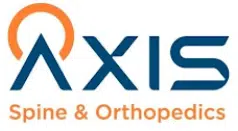Some Known Factual Statements About Axis Spine And Orthopedics
Some Known Factual Statements About Axis Spine And Orthopedics
Blog Article
Getting My Axis Spine And Orthopedics To Work
Table of ContentsNot known Factual Statements About Axis Spine And Orthopedics Not known Incorrect Statements About Axis Spine And Orthopedics Get This Report on Axis Spine And OrthopedicsOur Axis Spine And Orthopedics PDFs
An orthopedic specialist is a doctor that specializes in treating problems of the bones, joints, and connective cells, and ensuring you preserve a healthy and balanced bone and joint system., we have extremely certified orthopedic surgeons that are capable of treating clients of all ages. I got entailed in research throughout my very first year of medical institution, and I started making links with orthopedic doctors early on.
Talk about the post-operative treatment plan with your specialist. Organize for transportation to and from the medical facility on the day of surgical procedure.
8 Easy Facts About Axis Spine And Orthopedics Shown

Your medical professional will offer plenty of info relating to post-operative care, including just how to remain clean and maintain the medical location tidy. Adhering to these suggestions can prepare you physically and psychologically for your orthopedic surgical treatment. Remember to keep a favorable overview and trust fund your medical group's knowledge, contributing to a smoother recuperation procedure.

Nobody expects you to know anything, so do not attempt to memorize a bunch of random facts. Otherwise, joint pain can truly mess up your life.
Typical problems treated by orthopedic specialists are: Fractures and Bone Injury: Broken bones and various other injuries from crashes or impacts. Bone Cancer: Lumps in the bones. Orthopedic Injury: Serious injuries affecting bones, joints, company website or soft cells.
Orthopedic surgeons execute a range of treatments to assist individuals with musculoskeletal issues. Apart from these subspecialists, some orthopedic surgeons are generalists. Training may consist of standard medical institution (a physician of medication degree, or MD)or osteopathic education (a medical professional of osteopathy level, or DO) - axis spine.
3 Easy Facts About Axis Spine And Orthopedics Described
Next off, they finish an orthopedic residency. It's generally 5 years and supplies hands-on knowing in a medical setup. Consultations frequently consist of: Reviewing your symptoms, clinical background and way of living.
Therapy suggestions. Some problems need added imaging, like a CT scan or MRI for more comprehensive sights of the uncomfortable location. Your orthopedist will certainly suggest therapies to decrease signs till you get a medical diagnosis. Orthopedic surgeons focus on nonsurgical and surgical methods. For certain sorts of orthopedic injury or genetic problems, surgical procedure is often the first line of treatment. For a lot of other conditions, orthopedists try nonsurgical therapiesfirst. It might take greater than one kind of therapy to achieve enduring relief. Selecting the right is vital for effective medical outcomes and improved person healing. With a variety of choices readily available out there, it can be frustrating for both surgeons and patients to make a notified decision. The top 5 elements to consider when selecting an orthopedic dental implant are medical compatibility, cost-effectiveness, considerations for alteration surgical procedure, patient-specific elements, and the layout and technology of the dental implant. They come in various forms, sizes, and products, each offering a particular purpose based upon the client's requirements. Comprehending the fundamentals of orthopedic implants is crucial before diving right into the decision-making process. One of the leading considerations when picking an orthopedic dental implant is its compatibility with the operation. Different implants are made for different medical techniques and strategies. The orthopedic implant should be especially created to fit the client's makeup and make sure stability throughout the recovery procedure. Surgical compatibility involves elements such as dental implant dimension, shape, and material. The success of orthopedic procedures counts heavily on the appropriate selection and placement of implants that work with the individual's composition and clinical background. By focusing on client security and well-being, orthopedic surgeons can attain effective outcomes and provide the best quality of care to their people. Surgeons have to very carefully consider the biomechanical homes of the dental implant and exactly how it will integrate with the person's bone framework. This will add to better medical outcomes, reduced complications, and shorter recuperation time. When picking implants for a client, it is necessary to think about a range of patient-specific elements that can affect the success and end result of the procedure. These variables incorporate the client's age, bone quality and quantity, oral health and wellness standing, clinical history, way of living practices, and visual choices. For older patients with compromised bone density, shorter implants or grafting procedures might be useful to supply the required stability and assistance. 3. Is the dimension of the orthopedic dental implant a crucial consideration? Exactly how does it influence the procedure and the client's recovery? Yes, the size of the implant is important as it has to match the client's structure for correct fit and performance. 4. Can the client's age and way of life contribute in choosing the most appropriate orthopedic dental implant? Absolutely. Exactly how does the cost of an orthopedic implant variable into the decision-making process, and are there methods to balance top quality with affordability? The expense of the implant is an important factor to consider, however it ought to not be the single determining factor. Balancing quality with price includes considering different dental implant alternatives 'lasting advantages and potential problems. Report this page